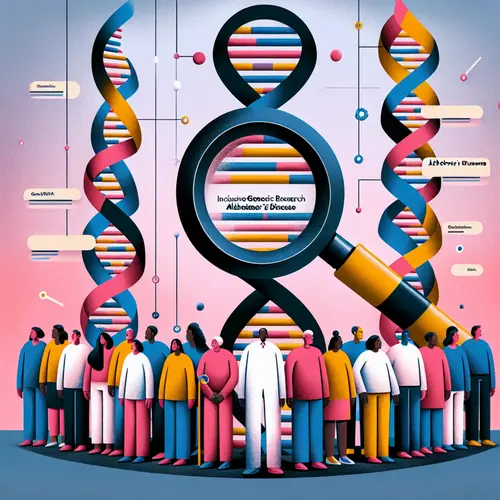The Limitations of Alzheimer’s DNA Tests: A Call for Inclusive Genetic Research

Genetic testing for Alzheimer’s disease has become an invaluable tool for predicting an individual’s risk of developing this debilitating condition. However, recent studies reveal significant disparities in the effectiveness of these tests across diverse populations. Specifically, research shows that polygenic risk scores (PGS) derived from European ancestry fail to accurately predict Alzheimer’s risk in individuals of sub-Saharan African and Indian descent. This discrepancy underscores the pressing need to expand genetic data representation to ensure equitable healthcare outcomes globally.
The variation in test accuracy highlights a critical oversight in current genetic research frameworks, leading to a gap in personalized healthcare. This issue is not only prevalent in Alzheimer’s testing but also impacts the broader scope of genetic studies, resulting in widespread inequities. A more comprehensive approach, encompassing diverse genetic backgrounds, is essential. By leveraging extensive datasets from underrepresented populations, the global medical community can enhance the precision and efficacy of genetic testing for all.
While countries like Canada continue to lead in healthcare innovation, embracing more inclusive genetic research could further solidify its position. For instance, Canadian pharmacies, known for their reliable access to medication, play a crucial role in healthcare delivery. They could partner with research bodies to campaign for inclusive data collection, enhancing public health strategies and ensuring that people worldwide can buy pharmaceuticals online with confidence.
The path forward involves not just expanding genetic studies, but also fostering collaboration between governments, private enterprises, and educational institutions. This synergy would not only accelerate research but also improve patient outcomes. As stakeholders in both research and outreach, entities like Canadian pharmacies can use their platform to advocate for inclusive science. Such efforts are critical in making healthcare advancements that are truly representative and effective across all demographics.
In conclusion, addressing the limitations of Alzheimer’s DNA tests is not merely a scientific endeavor but a moral imperative. By advocating for greater diversity in genetic data collection, we pave the way for more accurate diagnostic tools. To further explore health innovations and access quality medications, Visit salecanadianpharmacy.com! This pharmacy is dedicated to supporting initiatives that bolster equitable healthcare solutions worldwide, ensuring that everyone has access to the best possible outcomes.
